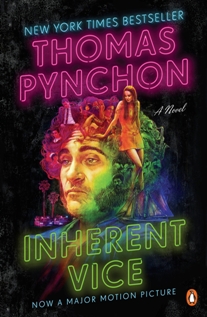 Overwhelmed by the tsunami of pettiness and downright meanness in the news this summer? These biopics make a refreshing change. RBG and Won’t You Be My Neighbor? properly celebrate two talented individuals who single-mindedly dedicated themselves to making better the lives of others.
Overwhelmed by the tsunami of pettiness and downright meanness in the news this summer? These biopics make a refreshing change. RBG and Won’t You Be My Neighbor? properly celebrate two talented individuals who single-mindedly dedicated themselves to making better the lives of others.
RBG
The story of how Ruth Bader Ginsburg became an icon for women’s rights began when, as a newly minted law school graduate (Harvard and Columbia), she had trouble getting a job (trailer). Filmmakers Julie Cohen and Betsy Ward are obvious admirers, but then, there’s lots to admire. The film includes plenty of archival footage of Ginsburg as a quite beautiful young woman, as well as audio of her earliest arguments before the Supreme Court supporting “gender blindness.”
This historical footage is supplemented by present-day interviews with legal scholars, journalists, politicians, Ginsburg’s children, and RBG herself. Although she fought fiercely for women’s rights, as a person, she’s shy and unassuming. Her parents taught her that angry displays were “self-defeating,” and she kept her calm demeanor in her court battles, even though she says she felt like a kindergarten teacher, helping judges and even members of earlier Supreme Courts to an understanding of the systematic discrimination women faced and its costs. Of course, the battle isn’t over yet and has opened on a new front with #metoo.
If she never shows anger, she shows plenty of love for her husband Marty, who died in 2010. His support enabled her to achieve much of what she has, which every woman in America benefits from today, whether she knows it or not.
Rotten Tomatoes critics’ rating: 93%; audiences: 80%.
Won’t You Be My Neighbor?
 When I saw previews of this Morgan Neville documentary about children’s television personality Fred Rogers, I was afraid it might be overly saccharine (trailer). But Rogers himself puts that issue to rest by his absolute sincerity and persuasiveness. Himself a child development expert, convinced by research showing the value of young children knowing they are loved for who they are, he used television to carry that message.
When I saw previews of this Morgan Neville documentary about children’s television personality Fred Rogers, I was afraid it might be overly saccharine (trailer). But Rogers himself puts that issue to rest by his absolute sincerity and persuasiveness. Himself a child development expert, convinced by research showing the value of young children knowing they are loved for who they are, he used television to carry that message.
Over the years his slow delivery and habits (putting on his sweater, changing his shoes) have been mocked by numerous comedians—clips of these skits are included. OK, but the relevance of those critiques is completely undermined when the film juxtaposes scenes from his program with the usual pie-in-the-face comedy, the frantic action, the fights and violence more typical of children’s programming. There can be no question which is healthier for small children. Yet his show didn’t duck difficult issues. It took on divorce, death, 9/11, assassination—issues kids hear about, but may not get much help in understanding and processing.
Under Rogers’s gentle exterior beat the heart of a “true radical,” said Odie Henderson for RogerEbert.com. The opening song with which he greeted his audience every day said, “I have always wanted to have a neighbor just like you,” and that “you” included children of all races, abilities, and religions, wherever they lived, recent immigrants or the scions of old Boston families. He loved them, each and every one, just as they were. And they knew it.
Rotten Tomatoes critics’ rating: 99%; audiences: 98%.





 Wait for cable. This Paul Weitz film
Wait for cable. This Paul Weitz film  She was Julia Child. She was Margaret Thatcher. She was Mamma Mia. And now Meryl Streep is Ricki Rendazzo, aging, nearly bankrupt rock singer living uneasily with a big consequential choice she made along the way—career over family (
She was Julia Child. She was Margaret Thatcher. She was Mamma Mia. And now Meryl Streep is Ricki Rendazzo, aging, nearly bankrupt rock singer living uneasily with a big consequential choice she made along the way—career over family (
 When this film (
When this film ( Give yourself a refreshing
Give yourself a refreshing  Missed this December 2014 crime drama (
Missed this December 2014 crime drama (
